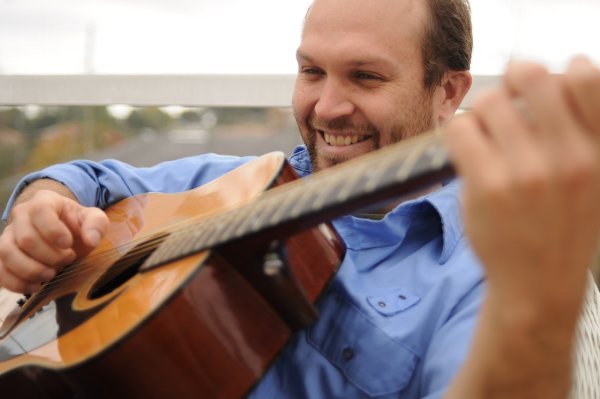Celtic-influenced singer-songwriter Matt Shipman’s new CD is called “Solitary Wander.” GO recently caught up with him for an education on Celtic music and his personal story.
When was “Solitary Wander” released, and where can people purchase a copy?
It was released on Dec. 1, and you can get a copy on my website (shippymusic.com), CDbaby and iTunes, and soon some Bull Moose locations as well.
Why did you call the CD “Solitary Wander?”
It came from a lyric in a Dick Gaughan song, “Westlin Winds.” “Some social join, some leagues combine, some solitary wander.” Since this is a solo album, I thought this lyric was really nice and appropriate for the title, plus I love Dick Gaughan and that song.
I see you’re from Exeter, N.H. Where in Maine do you now live?
I live in Portland and I love this town so much. There’s such great music, creativity and good people — a very inspiring place to be.
How and when did you first become interested in Celtic music?
Probably back in the late ’90s when I started playing with a fiddle player who was into that style and I’ve continued to learn more about it ever since. There is a great Irish music scene here in Portland and in Maine, and I’ve learned so much from these folks, many of which are now dear friends of mine.
When did you learn guitar, and when did you start singing and writing songs?
I’ve been writing songs for longer than I can remember now, but definitely after I started playing guitar, which was when I was 13 or so.
How about the bouzouki? When did you get into that? What was it like learning to play that versus a traditional guitar?
I’ve been messing around with the bouzouki for almost 10 years. I just really like that back-up style for Irish music that was forged by Alec Finn, Andy Irvine and others. It just depends on who you’re playing with, etc. It’s also been really fun to sing with the bouzouki as well because it brings out different moods and sounds that go really nicely with certain songs. I play mandolin too, so the “zouk,” as it’s sometimes called, is basically an octave mandolin unless you tune the highest E string down to D, then it’s a bouzouki. It was a fairly easy leap for me, I guess, from the guitar and mandolin to the zouk, but then again, I’m no Andy Irvine. But I do what I do and have fun, and think it’s a lovely instrument.
Several songs on the CD are two-part ones like “Going Across the Sea/Farewell on Erin” and “O’Connell’s Trip to Parliament/The Hungry Rock.” What is your understanding of the history of these types of songs?
Medleys are very much a part of the traditional Irish music sound. Tunes are played in medleys or one after another, often changing keys and sometimes time signatures. Songs (with lyrics) into tunes (melodies without lyrics) is also common, and I think both are a nice sound.
What do you think a common misconception is about Celtic music?
That there is one kind of it. It is such a diverse and complex music; within “Celtic” there is Irish, Scottish, Welsh, Breton, etc., and within each of these, there are unique styles. For instance, music you hear in the north of Ireland is very different from the south, and there are even differences in these smaller regions. Oftentimes, people think of Irish music as some of the singing songs you may hear on St. Patrick’s Day, for instance, but there is so much more than that, such as a vast catalog of instrumental tunes and unaccompanied singing. It is so wonderfully complex.
Staff Writer Aimsel Ponti can be contacted at 791-6455 or at:
aponti@pressherald.com
Send questions/comments to the editors.




Success. Please wait for the page to reload. If the page does not reload within 5 seconds, please refresh the page.
Enter your email and password to access comments.
Hi, to comment on stories you must . This profile is in addition to your subscription and website login.
Already have a commenting profile? .
Invalid username/password.
Please check your email to confirm and complete your registration.
Only subscribers are eligible to post comments. Please subscribe or login first for digital access. Here’s why.
Use the form below to reset your password. When you've submitted your account email, we will send an email with a reset code.